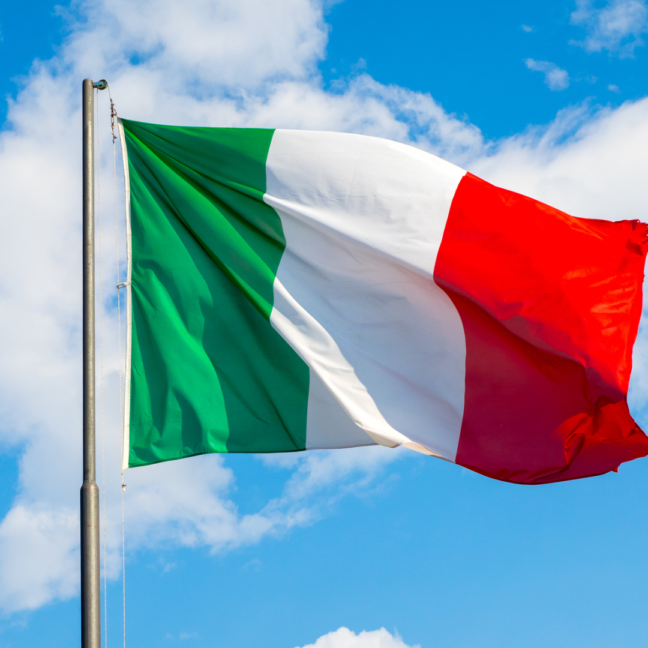VAT, or ‘Imposta sul Valore Aggiunto’ (IVA) in Italy, is a consumption tax applied to a product at each stage of the supply chain, from production to the point of sale. For e-commerce businesses, understanding the VAT system in Italy is of paramount importance. It directly impacts your pricing strategy, overall profitability, and compliance with Italian tax laws. As a digital consumer, understanding VAT can help you discern the breakdown of costs in the prices you pay for online goods and services.
The Value Added TaxVAT, “Imposta sul Valore Aggiunto” (IVA) in Italy, was introduced in 1972, marking a significant shift in the country’s fiscal landscape. Implementing VAT was part of Italy’s broader strategy to simplify its tax system and align with the European Union’s common VAT system, promoting fair competition and free trade among member states. Over the years, the VAT system has been fine-tuned and adjusted in response to changing economic conditions and policy objectives.

Italy’s Value Added Tax System
Italy’s Value Added Tax (VAT), known locally as ‘Imposta sul Valore Aggiunto’, is a complex, tiered system that is designed to accommodate the wide variety of goods and services that contribute to the country’s dynamic economy.
Standard VAT Rate
The standard VAT rate in Italy is 22%. This rate is applied to a wide range of goods and services. For instance, electronics such as computers, smartphones, televisions, clothing items from dresses to shoes, and professional services like legal advice, consulting, and advertising are all subject to the standard VAT rate. This rate is also applied to restaurant services and most other consumer services.
Reduced VAT Rates
A reduced VAT rate of 10% is applied to certain goods and services in Italy. This includes agricultural products like wine, olive oil, and certain dairy products. Housing services, such as home renovations, repairs, and maintenance services, are also subject to this reduced rate. In the tourism sector, hotel accommodation, excluding luxury hotels, and certain travel services are taxed at this 10% rate.
Super-Reduced and Zero-Rated VAT
Essential goods and services in Italy are subject to a super-reduced VAT rate of 4%. This includes basic food items like bread, milk, fruits, and vegetables, excluding those served in restaurants. Books, newspapers, and periodicals, whether printed or digital, also fall under this category. Certain medical products, such as prescription drugs and medical equipment for personal use, and services like primary health care are taxed at this super-reduced rate.
Some transactions in Italy are zero-rated, which means that VAT is technically applied but at 0%. These zero-rated transactions include international transport services, intra-community and international trade, and specific services associated with international goods traffic.
The Special VAT Rate
Italy also has a special 5% VAT rate for certain specific goods and services. This rate applies to tickets for live theatrical performances and concerts, excluding those considered luxury or VIP. Certain social services, such as services provided by retirement homes, rehabilitation centres, and child care services, are also taxed at this special rate.
VAT Exemptions
Exempt Goods and Services
A variety of goods and services are exempt from VAT in Italy, in alignment with the EU VAT Directive. These include but are not limited to medical and health services, insurance and financial services, real estate transactions, and certain educational activities. For e-commerce businesses, it’s crucial to understand which goods and services fall under these exemptions, as it can significantly impact pricing strategies and the overall business model.
Tax-Exempt Organizations
Certain organizations, such as non-profit organizations, religious institutions, and governmental bodies, are exempt from VAT in Italy. It’s important for e-commerce businesses to be aware of these exemptions, particularly when entering into B2B transactions with these entities. This information is crucial in ensuring that the correct VAT rates are applied and that tax obligations are correctly fulfilled.
Temporary Exemptions for Special Events
Italy also allows for temporary VAT exemptions for special events, such as international exhibitions, cultural events, and trade fairs. E-commerce businesses participating in or supplying these events could benefit from these temporary exemptions, which can provide a significant financial advantage.
Understanding the intricacies of VAT exemptions in Italy is vital for e-commerce businesses. It’s not just about knowing which goods and services are exempt, but also who you are doing business with and what events you are participating in. Staying updated on these exemptions can help e-commerce businesses navigate the complex Italian VAT landscape and ensure their operations remain compliant and financially optimized.
VAT Compliance for E-Commerce Businesses
Filing VAT Returns
Italian VAT-registered businesses, including e-commerce platforms, are required to submit periodic VAT returns. These returns, known as ‘dichiarazioni IVA‘, must be submitted annually, with the due date being the last day of April following the end of the tax year. Depending on the size and nature of the business, quarterly, or monthly returns might also be required.
Deadlines and Penalties
Meeting VAT return deadlines is crucial in Italy, with penalties for late filing ranging from 120 to 240 percent of the VAT due. For e-commerce businesses, ensuring timely VAT return submission is not just about avoiding penalties but also about maintaining a solid financial reputation, which can influence customer trust and business partnerships.
Intrastat Reporting
In addition to VAT returns, e-commerce businesses dealing with intra-EU trade need to comply with Intrastat reporting requirements. This involves submitting monthly declarations detailing the movement of goods between Italy and other EU member states. This reporting mechanism, known as ‘Sistema Intrastat‘, helps monitor trade flows within the EU and can influence VAT obligations.
VAT Audits
Lastly, e-commerce businesses in Italy should be prepared for potential VAT audits by the Italian Revenue Agency (‘Agenzia delle Entrate’). These audits, aimed at ensuring VAT compliance, can involve detailed scrutiny of business records and transactions.
Deliveries of Goods and Services in Italy
B2B Transactions
For B2B transactions within Italy, VAT is typically charged at the applicable rate, and the business customer can generally recover this VAT. For cross-border B2B transactions within the EU, the “reverse charge” mechanism often applies. This mechanism means that the buyer, rather than the seller, is responsible for accounting for the VAT.
B2C Transactions
For B2B transactions within Italy, VAT is typically charged at the applicable rate, and the business customer can generally recover this VAT. For cross-border B2B transactions within the EU, the “reverse charge” mechanism often applies. This mechanism means that the buyer, rather than the seller, is responsible for accounting for the VAT.
Reverse-Charge Mechanism
The reverse-charge mechanism, or ‘meccanismo di inversione contabile’, is a VAT technique often used in B2B transactions, especially cross-border ones. The mechanism shifts the responsibility for reporting VAT from the seller to the buyer, a move designed to ease the VAT reporting burden for sellers and prevent VAT fraud.
Special Rules for E-Commerce and Digital Services
E-commerce businesses should also be aware of the special VAT rules for digital services in the EU, known as the “One-Stop-Shop”(OSS) rules. These rules allow businesses supplying digital services to consumers in the EU to report and pay VAT via a single return, rather than having to register for VAT in each EU country where they have customers.






